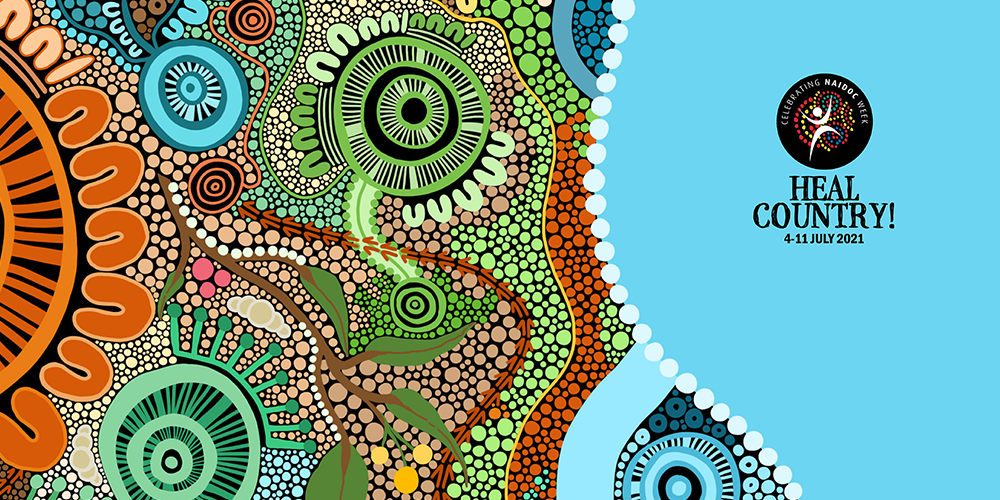
The Royal Women’s Hospital is launching a new group antenatal program designed specifically for Aboriginal and Torres Strait Islander women, thanks to funding from Liptember – a national campaign dedicated to women’s mental health.
The Women’s psychiatrists, specialist midwives and Aboriginal Hospital Liaison team have collaborated to design a trauma-informed mental health program, online and in-person, that promotes and enhances the maternal bond.
Boon Wurrung Elder, Aunty Fay Stewart-Muir, gave her permission to name the program: Yana-bul Ngargee-Dha. This means ‘you are dancing’ in the Boon Wurrung language of the Kulin Nations1.
Dr Kristine Mercuri, a psychiatrist from the Women’s said the pilot program aims to support the emotional and mental health needs of Aboriginal and Torres Strait Islander women – who are more likely to experience mental health problems2 and poorer perinatal outcomes3.
“While specific research into the impacts of attachment trauma on Aboriginal people is still in its infancy, we know that trauma has to be a key consideration of healthcare for Aboriginal women – particularly as they bring new life into the world,” said Dr Mercuri.
“Having a baby can be challenging and pregnancy in itself can be a trigger for those women who have themselves experienced attachment trauma, where bonding with a parent has been disrupted. And this may impact the way they bond with their baby.
“We’ll work with groups of up to 20 women at a time to build skills in grounding and stabilisation of mental state in preparation for a new baby. They’ll be able to build therapeutic alliances with other women, common in many antenatal group sessions. We think this will give women in the program a great start to motherhood.”
Part of the program’s funding will also support and educate midwives who provide care to Aboriginal and Torres Strait Islander women as they transition to parenthood.
Specialist midwife Stephanie Mahon runs Baggarrook Midwifery Care at the Women’s and said the importance of culturally-affirming care throughout pregnancy, birth and postnatally cannot be overstated.
“Starting three years ago the Baggarrook program has provided hundreds of Aboriginal and Torres Strait Islander women with specialised support when having their babies at the Women’s. We’ve seen incredible outcomes for these families thanks to the wonderful work of the Baggarrook midwives,” said Ms Mahon.
“With the new Yana-bul Ngargee-Dha program, we hope to give specialist midwives the skills and support they need when caring for those experiencing complex trauma.”
Managing Director of Liptember Luke Morris said the charitable campaign, now in its 12th year, was proud to support the Women’s and fund mental health programs such as Yana-bul Ngargee-Dha.
“We believe every Aboriginal and Torres Strait Islander woman in Australia should have access to mental and emotional support at this pivotal time in their lives. Combined with the Women’s outstanding clinical care, we hope this program helps to set a new benchmark for Aboriginal maternity care in this country.”
|
Liptember has been a proud supporter of mental health programs and initiatives at the Women's since 2010. |
Notes
1. Explanation of Language Title – Dance is important to Aboriginal people and tells stories of exciting events that occur at certain times in their lives – hunting, a child born. It also has a lot to do with where you live on country. Dance can also be seen in many cultural ceremonies to tell stories.
2. A 5-year analysis of maternity patients at the Women’s published in BMC Pregnancy and Childbirth in 2018 found Aboriginal mothers were more likely to have a mental health diagnosis (49.5%) compared to non-Aboriginal mothers (18.8%).
3. The Australian Institute of Health and Welfare (AIHW) Australia’s mothers and babies report presents key statistics and trends on pregnancy, childbirth and outcomes, including the disparities between Indigenous and non-Indigenous mothers and their babies across a range of maternal and perinatal measures.
Read related content from the Women's
-
 Healing country and healing health this NAIDOC Week
Healing country and healing health this NAIDOC WeekThe Royal Women’s Hospital has celebrated NAIDOC Week with a special webinar for its staff exploring this year’s theme – Heal Country!
Learn more -
 Maternity program awarded for improving Aboriginal health
Maternity program awarded for improving Aboriginal healthA program at the Women’s that supports Aboriginal and Torres Strait Islander women through pregnancy, during labour and birth, and in the postpartum period has received the state’s top award for improving Aboriginal health.
Learn more